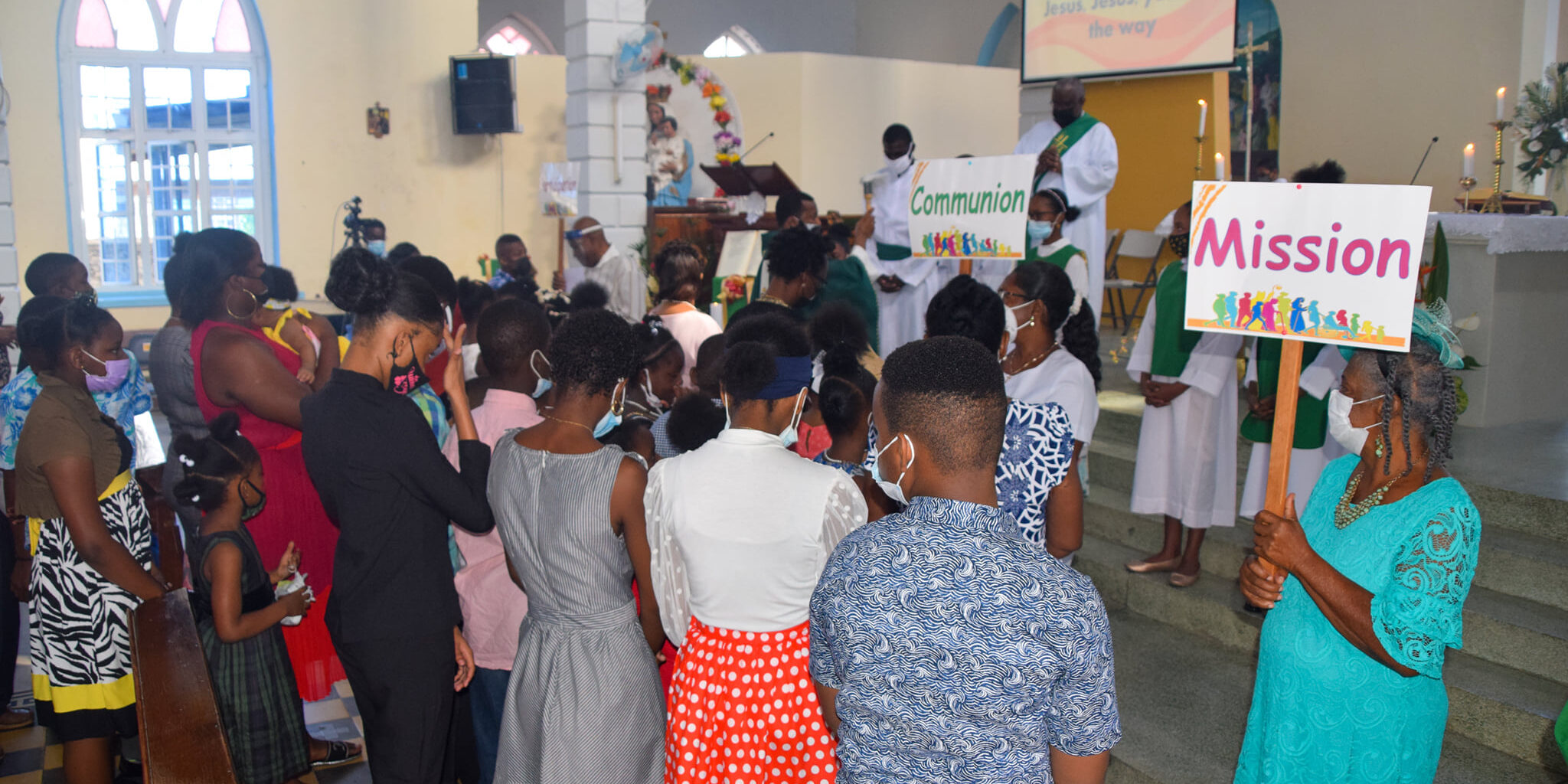The Coronavirus pandemic has severely occasioned the diminishing participation in church life and attendance. Similar to the education system losing some students with the advent of online classes, the Church has also lost active and passive members. In a recent conversation with a youth leader, she lamented bitterly that, with the reopening of parishes for worship, she has not seen many youths attending Mass.
At the start of the pandemic and online ministry many pastoral leaders failed to realize that there were several variables that would cause minimal or no participation at all. Some of these were poor quality online programming and equipment, increased competition from secular and religious users of the virtual space, poor internet connectivity in some communities, lack of efficient devices to access online services, and inability of some to navigate the virtual space. Prior to the pandemic, some church parishes were already losing members due to inhospitality and irrelevant or redundant ministries. The pandemic simply fast-tracked the attrition rate.
The Australian theologian and missiologist Michael Frost wrote, “I’ve lost count of the number of Christians who’ve told me they either stopped attending church or left their church to join another one because they couldn’t make any friends there.”
Within this context of augmented attrition rate, I believe the synod journey is a kairos or ripe moment in the life of the Church to undergo conversion in preparation for evangelization. According to the Synod Handbook, “This Synod Process . . . is intended to enable the Church to better witness to the Gospel, especially with those who live on the spiritual, social, economic, political and geographic, and existential peripheries of the world” (1.4). Empowered and inspired by the Spirit with whom the Church stands, we are invited to relinquish our social, spiritual, economic, political, geographic, and existential comfort zone and engage those with whom we have either intentionally or unintentionally excluded or ignored. To this end, the synodal pathway aims to prepare the Church for evangelization and it is a moment of evangelization. In words and actions that reflect the attitude and spirit of Jesus Christ, the Church carries out its mission of evangelization. The synodal Handbook refers to some of these attitudes as humility in listening, courage in speaking, openness to change, and leaving behind prejudices and stereotypes. This mission must be exercised intentionally, especially to those on the periphery of our own closed circles and those who have been marginalized or have marginalized themselves.
Naturally, we cannot be witnesses of someone’s words and actions if we have not encountered that person, and experienced conversion because of the encounter. As we recall the experience of the disciples of Jesus Christ, we note that their own encounter with the person and mission of Jesus Christ triggered personal conversion in preparation for mission. In John’s narrative of the Washing of the Disciples’ Feet, for example, Peter’s refusal to have his feet washed is greeted with an unapologetic response from Jesus who says, “Unless I wash you, you will have no inheritance with me” (John 13: 8). Jesus’ verbal message is unblemished, “Unless you are humble to allow your feet to be washed by me, you won’t understand the meaning of my ministry and you can’t ‘preach’ in my name.” In this vein, Pope Francis and the Synod secretariat have been accentuating the need for personal and communal conversion during the synod journey: “This change calls for a personal and communal conversion that makes us see things as the Lord does” (Handbook1.4) and “. . . it is an opportunity to foster the synodal and pastoral conversion of each local Church so as to be more fruitful in mission” (Handbook 1.1).
What are the areas of personal and communal conversion necessary? The Handbook refers to them as pitfalls or temptations to avoid. Here I list them, accompanied by scripture passages, for your reflection:
- Wanting to lead ourselves instead of being led by God (Mark 1:36)
- Focusing on ourselves and our immediate concerns (Matthew 14:15)
- Seeing only “problems” (John 12:5)
- Focusing on structures (Acts 15:5)
- Not looking beyond the visible confines of the Church (Mark 9:38)
- Losing focus of the objectives of the Synodal Process (Luke 24:18)
- Conflict and division (Luke 9:46-47)
- Treating it as a kind of parliament (Act 15:1-2)
- Listening only to those already involved in Church activities (John 6:1-15)
The Synod initiative is prophetic. It arrives at a moment when the People of God (laity, religious, clergy, and bishops) need to be renewed and empowered by the Holy Spirit to embark on missioning in a constantly changing and volatile time characterized by emotional pain, social disruption, and attrition of members. In response, we have locked ourselves away from each other for fear of the virus. Now the Holy Spirit desires to unlock the gates of fear and beckons us to go to the periphery with the Good News.
Article by Fr. Donald Chamber







